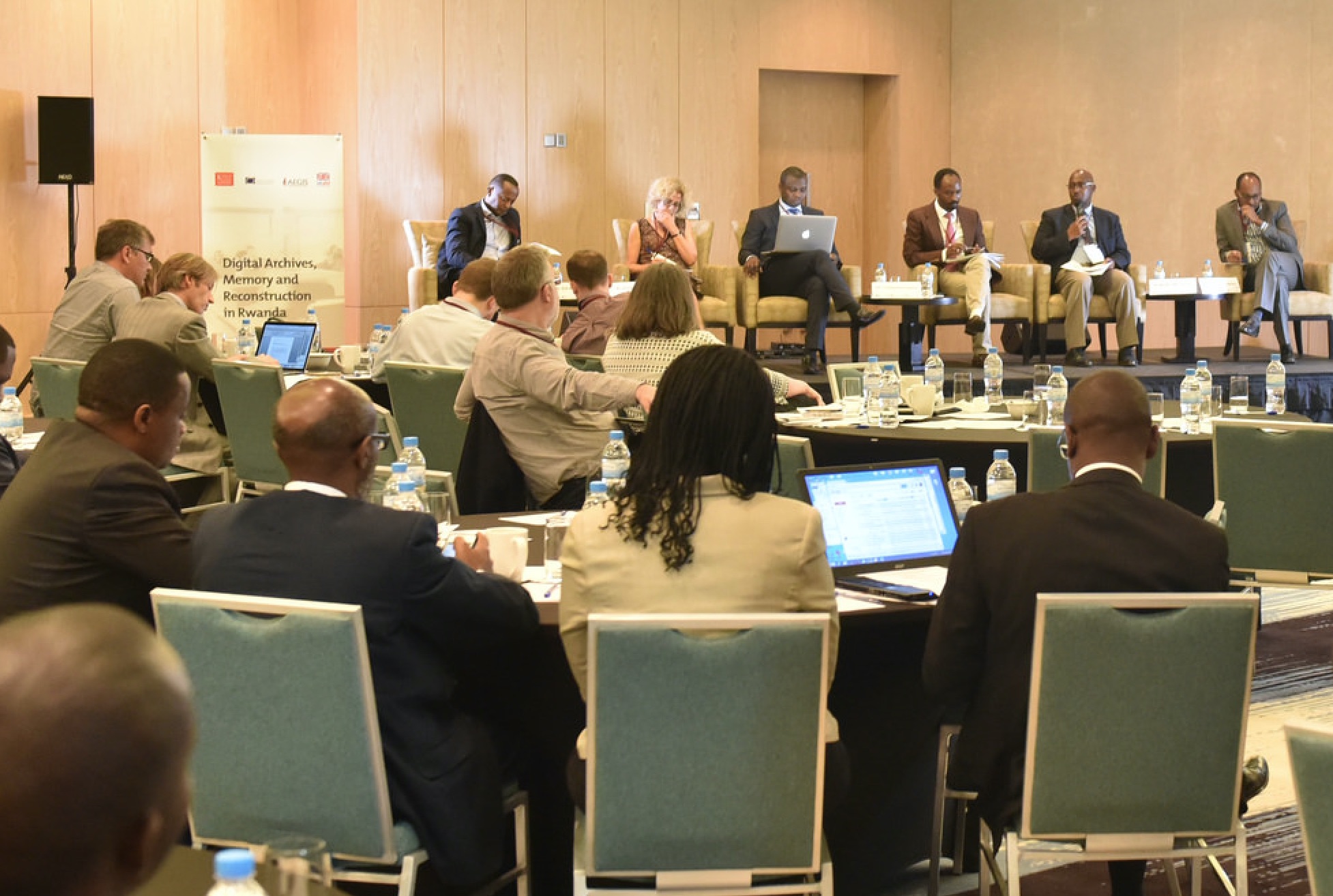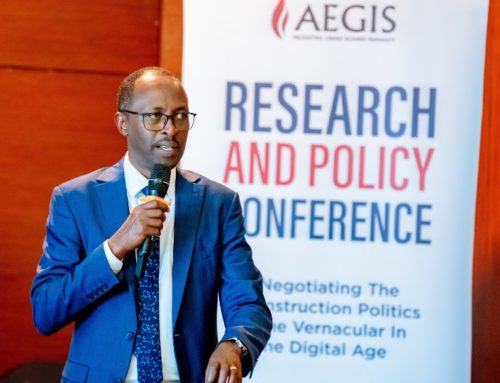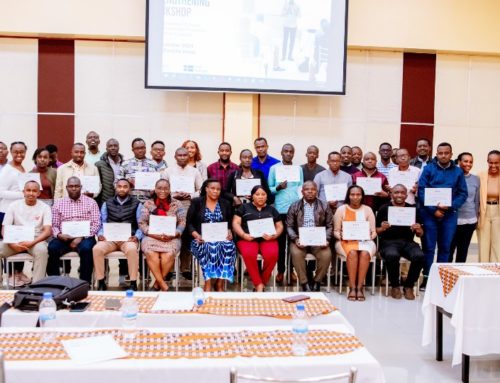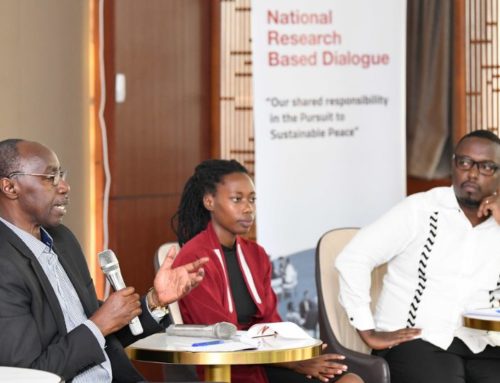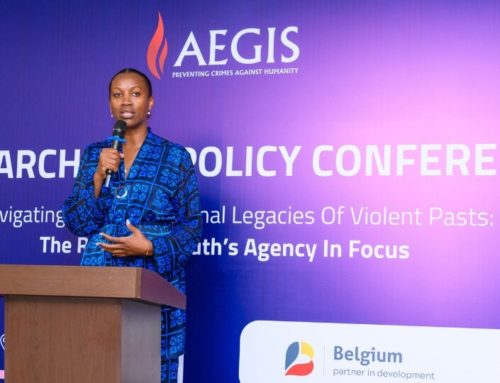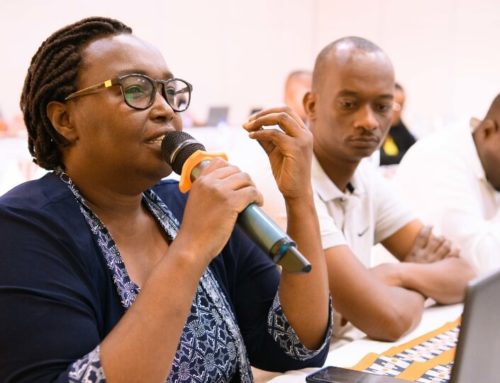The second day of the Aegis Trust and King’s College London (KCL) conference on Digital Archives, Memory and Reconstruction in Rwanda continued with discussions on four subtopics: Memory and Memorialisation, Education and Peace Building, Social Justice and Inclusivity, and Capacity Building and the Digital Economy.
Professor Sheila Anderson, Head of the Digital Humanities Department at KCL, opened the day by encouraging participants to contribute to a “roadmap for future action on digital archives in Rwanda”.
Accessible Archives
The first discussion identified and prioritised content from archives and collections within Rwanda. Breakout groups examined institutions that have archives related to the Genocide against the Tutsi, and how to both learn from and improve their work.
Participants highlighted the importance of having a comprehensive catalogue of existing material on the Genocide. They also recommended that these materials should be freely accessible, not only through digitising the material, but also by preserving material vulnerable to physical deterioration. Finally, participants discussed the potential for new archival material such as witness testimony.
Collaboration
The focus of discussions shifted to collaboration between related institutions, and the need to align fragmented archiving initiatives. The groups identified many benefits to co-operation, including creating communities of practice, promoting peer-to-peer support, and sharing technical equipment and storage space, both physical and digital. These efforts would streamline archival processes and boost cost-effectiveness. In addition, participants discussed empowering smaller organisations, such as religious bodies, which would benefit from increased resource sharing.
Capacity Building
After breaking for lunch, the groups returned to consider skills and training issues that may arise in archival and digitisation projects in Rwanda. Particular focus was given to grass-roots efforts to increase the skills base of participants in such efforts.
As both groups highlighted, there are gaps currently in terms of formal archival studies, indexing and cataloguing skills, programming skills, and project management training. Solutions to such problems were proposed, including short courses, targeted workshops, expert visits, staff exchanges and more formal higher education, such as Bachelor and Master programmes. Such initiatives would ensure archives are more effectively managed, and more accessible by people with improved digital literacy.
Comprehensive Legal Framework
Finally, participants investigated issues that may arise with regards to the ownership, access and usage of archival materials. Both group stressed the necessity for a more developed legal framework and common policy for such issues. The wide variety of materials that Genocide archives contain means that a more formal legal set of provisions should be put into place.
The final day of the conference will create strategies and recommendations to effectively respond to these challenges. The conference has been made possible thanks to support from the UK Arts and Humanities Research Council.

